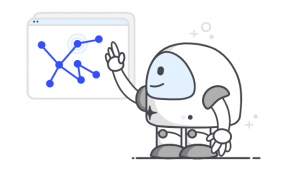Data, Like Daisies, Has a Lifespan and Should be Chucked When it Wilts, Says Consultant Randy Kahn
![]() Like everything else, information has a lifespan, and just like a beautiful bouquet of daisies, when it gets old and wilts, when it has no further business value and is past any compliance retention dates, it should be thrown out, says Randolph (Randy) Kahn, esq., lawyer, principle of Kahn Consulting, author and founder last year of Delve. Today, however, “many IT people don’t think of data as having a lifespan,” he said in an interview in the Cube with SiliconAngle Founder/CEO John Furrier and Wilibon Cofounder/Chief Analyst David Vellante from the IBM Information OnDemand conference.
Like everything else, information has a lifespan, and just like a beautiful bouquet of daisies, when it gets old and wilts, when it has no further business value and is past any compliance retention dates, it should be thrown out, says Randolph (Randy) Kahn, esq., lawyer, principle of Kahn Consulting, author and founder last year of Delve. Today, however, “many IT people don’t think of data as having a lifespan,” he said in an interview in the Cube with SiliconAngle Founder/CEO John Furrier and Wilibon Cofounder/Chief Analyst David Vellante from the IBM Information OnDemand conference.
As a result, and because corporate general counsels are always warning them to be very careful about what they delete, IT staffers save everything forever. This results in hundreds of Tbytes, in some cases Pbytes, of aging data that costs enterprises millions in direct storage costs, increases the level of exposure in a legal action, clogs vital IT systems such as ERP, and makes it much harder to find data that is valuable and needed, as Kahn detailed in an interview with Vellante before the conference.
What companies need is a legally defensible method for identifying and eliminating data that is past its sell-by date and has become just an expense. Kahn’s next book, Chucking the Daisies: How Companies Deal with Big Data, presents a series of rules for creating a workable records management system that does just that. However, rules are one thing and implementation another, and dealing with Pbytes of historical data requires a sophisticated technological system for the heavy lifting. That is where Delve comes in. It uses commercially available software, often systems the client already owns but does not know how to use effectively, to do all the “heavy lifting” of identifying the right data to delete.
This is not as easy as it might sound. “We are doing a big project right now for a large financial services company,” Kahn said. “The first stage of that project is just finding mathematically and numerically precise duplicates. Not near duplicates. Even that exercise, taking away in some cases dozens of exact duplicates … is a gargantuan savings in itself.” And, he adds, finding those duplicates, in multiple systems and locations and in some cases different formats, in Pbytes of data, is not a simple exercise.
Once those duplicates are eliminated, Delve simplifies the company’s retention rules and teaches that to the machine learning system along with the data types in use in the company. This also is not as simple as it seems. For instance, the Rules of Evidence and Rules of Civil Procedure require that companies retain records that may be used in evidence not only in legal actions presently underway, but also actions that may reasonably be expected in the future. That means that companies have to analyze things like complaints from customers, employees, and investors over anything from safety issues with products to possible harassment cases to financial questions involving company stock prices. And of course certain records have to be retained for specific amounts of time to comply with business regulations, and those requirements vary from jurisdiction to jurisdiction.
On the other hand, absent either an ongoing legal action or reasonable expectation of such an action, once those legal time limits expire if the data is no longer of business value, “do I need to predict the future? No.” Understanding the nuances of those regulations and encoding them correctly into the records classification system correctly obviously requires special knowledge.
Ultimately data that no longer has business value, and that no longer needs to be retained for legal reasons, is a present cost center and a potential risk. “Companies need a legally defensible way without causing liability or causing us heartburn to get rid of it in a methodical way,” Kahn said. “It’s every big business’s challenge today to address that.”
A message from John Furrier, co-founder of SiliconANGLE:
Your vote of support is important to us and it helps us keep the content FREE.
One click below supports our mission to provide free, deep, and relevant content.
Join our community on YouTube
Join the community that includes more than 15,000 #CubeAlumni experts, including Amazon.com CEO Andy Jassy, Dell Technologies founder and CEO Michael Dell, Intel CEO Pat Gelsinger, and many more luminaries and experts.
THANK YOU













